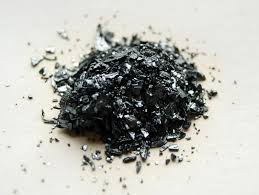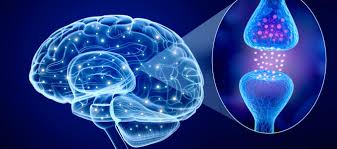D
Deleted member 100313
Lurker
USING HEAVY METALS LIKE: copper, zinc, cadmium iron... CAN IN THEORY HELP THYROID FUNCTION, IMPROVE METABOLISM, HAVE ANTIOXYDANT BENEFITS, BOOST GROWTH AND DEVELOPMENT, CAN HAVE GREAT COGNITIVE BENEFITS AND MORE.
Of course just in theory cause most of them are too dangerous.
1. INCREASED THYROID FUNCTION
- INCREASED IODINE UPTAKE

heavy metals could theoretically boost iodine uptake by the thyroid gland. Iodine is essential for the production of thyroid hormones (T3 and T4). If a heavy metal could mimic or enhance the role of iodine transporters, it might increase the production of thyroid hormones.
idk if this is a good idea, I would just use an iodine supplement tbh.
- INCREASED THYROID CONVERSION

The thyroid produces both T4 and T3 . The conversion of T4 into T3 requires certain enzymes, and in theory, if a heavy metal could enhance the activity of these enzymes, it could boost the availability of active T3.
If you don t have money for thyroid supplement you can try heavy metals, it may be risky but it showed results in clinical data.
2. ANTIOXYDANT PROPERTIES

-Some heavy metals, like selenium, have antioxidant properties and act as essential cofactors for enzymes like glutathione peroxidase, which protect the thyroid gland from oxidative damage.
This one could be useful since selenium is an already existing supplement.

-heavy metals could theoretically serve a similar catalytic or protective role, they might help the thyroid gland maintain function by reducing oxidative stress and inflammation, promoting longer-lasting glandular health.
there were little evidence of this but it does work even tho the effects are minimal and could be harmful
3. IMPROVED METABOLISM

Thyroid hormones regulate metabolism and heavy metals can optimize the production or activity of these hormones, we might see increased basal metabolic rates. This could translate to better fat burning, higher energy, and improved body weight management.
In the near future people would eat heavy metals to lose weight. Mark my words.
4. NEUROPROTECTIVE EFFECTS

Heavy metals might offer neuroprotective properties, possibly by mimicking or boosting the effects of antioxidants like selenium, which is crucial for protecting the brain from oxidative stress. they might help preserve cognitive function and reduce the risk of cognitive aging or neurodegeneration.
only use heavy metals that acctualy help with the brain like copper or selenium (do not poison yourself with mercury)

 www.mdpi.com
www.mdpi.com

 www.annualreviews.org
www.annualreviews.org

 link.springer.com
link.springer.com

 link.springer.com
link.springer.com
Of course just in theory cause most of them are too dangerous.
1. INCREASED THYROID FUNCTION
- INCREASED IODINE UPTAKE

heavy metals could theoretically boost iodine uptake by the thyroid gland. Iodine is essential for the production of thyroid hormones (T3 and T4). If a heavy metal could mimic or enhance the role of iodine transporters, it might increase the production of thyroid hormones.
idk if this is a good idea, I would just use an iodine supplement tbh.
- INCREASED THYROID CONVERSION

The thyroid produces both T4 and T3 . The conversion of T4 into T3 requires certain enzymes, and in theory, if a heavy metal could enhance the activity of these enzymes, it could boost the availability of active T3.
If you don t have money for thyroid supplement you can try heavy metals, it may be risky but it showed results in clinical data.
2. ANTIOXYDANT PROPERTIES

-Some heavy metals, like selenium, have antioxidant properties and act as essential cofactors for enzymes like glutathione peroxidase, which protect the thyroid gland from oxidative damage.
This one could be useful since selenium is an already existing supplement.

-heavy metals could theoretically serve a similar catalytic or protective role, they might help the thyroid gland maintain function by reducing oxidative stress and inflammation, promoting longer-lasting glandular health.
there were little evidence of this but it does work even tho the effects are minimal and could be harmful
3. IMPROVED METABOLISM

Thyroid hormones regulate metabolism and heavy metals can optimize the production or activity of these hormones, we might see increased basal metabolic rates. This could translate to better fat burning, higher energy, and improved body weight management.
In the near future people would eat heavy metals to lose weight. Mark my words.
4. NEUROPROTECTIVE EFFECTS

Heavy metals might offer neuroprotective properties, possibly by mimicking or boosting the effects of antioxidants like selenium, which is crucial for protecting the brain from oxidative stress. they might help preserve cognitive function and reduce the risk of cognitive aging or neurodegeneration.
only use heavy metals that acctualy help with the brain like copper or selenium (do not poison yourself with mercury)

Copper Supplementation, A Challenge in Cattle
Ensuring adequate copper supplementation in ruminants is a challenging task due to the complexity of copper metabolism in these animals. The three-way interaction between copper, molybdenum and sulphur (Cu-Mo-S) in the rumen makes ruminants, particularly cattle, very susceptible to suffering...

The Benefits and Risks of Iron Supplementation in Pregnancy and Childhood
Iron deficiency is the most common micronutrient deficiency in the world and disproportionately affects pregnant women and young children. Iron deficiency has negative effects on pregnancy outcomes in women and on immune function and neurodevelopment in children. Iron supplementation programs...

Effects of dietary cadmium supplementation on production performance, cadmium residue in eggs, and hepatic damage in laying hens - Environmental Science and Pollution Research
This study was conducted to investigate the adverse effects of cadmium (Cd) on the production performance, serum biochemistry, liver antioxidant status, histopathology, and egg residue in laying hens. A total of 72 healthy Hy-Line brown laying hens at 40-week-old were randomly assigned to four...
Iodine Supplementation - Drug Safety
In 1990, iodine deficiency affected almost one-third of the world population and was the greatest single cause of preventable brain damage and mental retardation. Following a resolution adopted by the World Summit for Children in 1990, major programmes of iodine supplementation were implemented...


